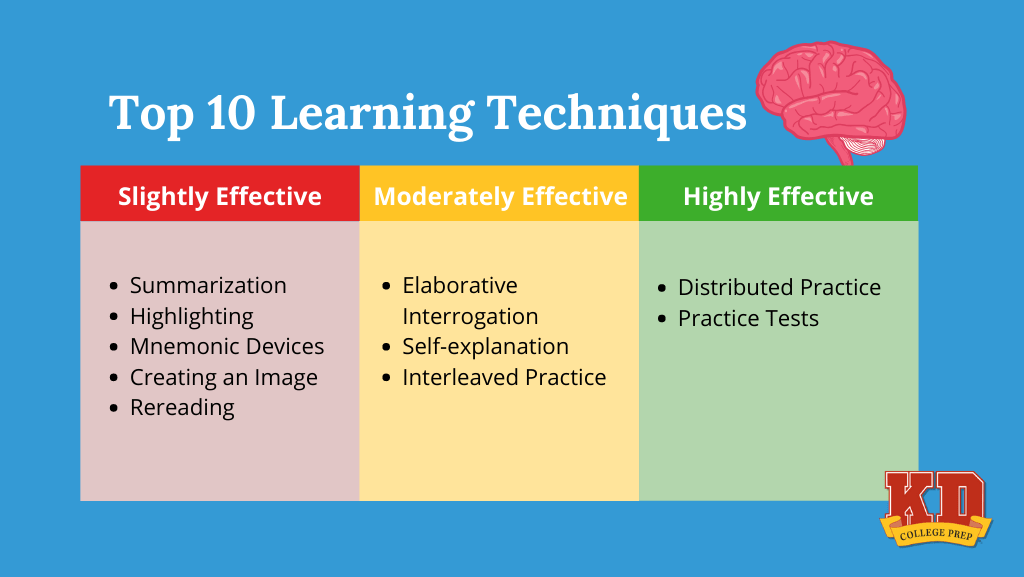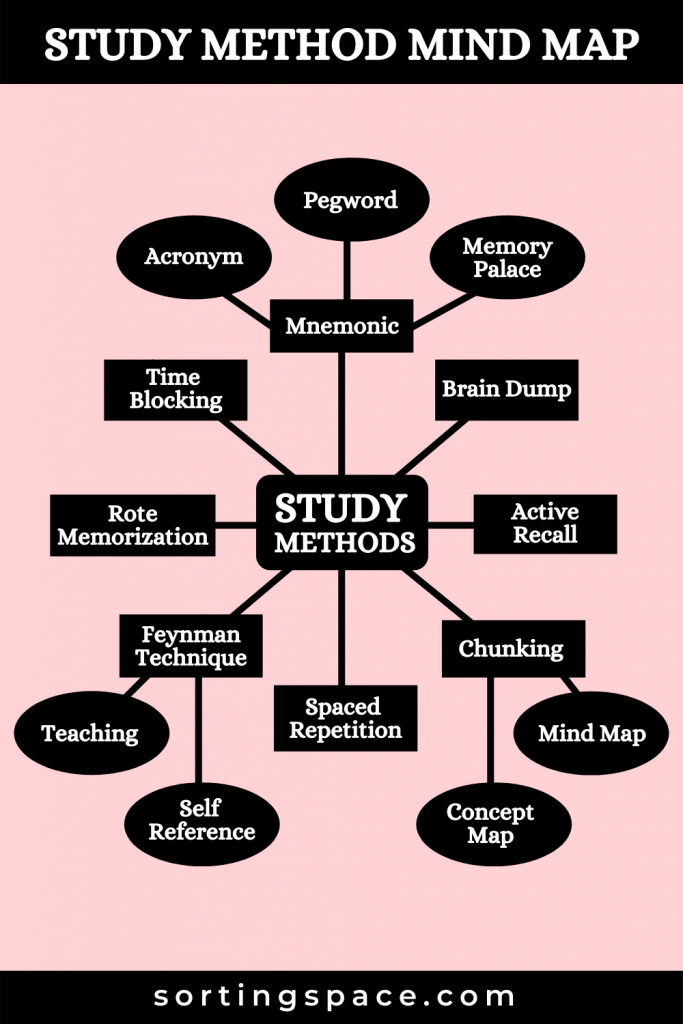In today’s fast-paced world, online learning has become a popular choice for many individuals seeking to further their education or enhance their skills. With the convenience and flexibility it offers, online learning has made it possible for people to pursue their educational goals while juggling other commitments such as work, family, and personal responsibilities.
However, with the freedom and flexibility that online learning provides, comes the challenge of managing time effectively. As an online learner, you are solely responsible for creating and following a schedule that allows you to balance your study sessions with other commitments. This can be overwhelming for some students, leading to procrastination, poor time-management skills, and ultimately, academic struggles.
To succeed in online learning, it is crucial to master time management techniques that will help you stay organized, focused, and on track towards achieving your academic goals. In this blog post, we will discuss nine effective study techniques for mastering time management in online learning.
Setting Clear Goals and Objectives
The first step towards effective time management in online learning is setting clear and achievable goals. Goal-setting gives you direction, motivation, and a sense of purpose, which are essential elements in managing your time effectively.
When setting your goals, it is crucial to be specific and realistic. Identify what you want to achieve through your online studies, whether it is completing a course, earning a degree, or acquiring a specific skill. Then, break down these broader goals into smaller, more manageable objectives that can be achieved within a set timeframe.
For example, if your goal is to complete a course within six months, set weekly or monthly objectives such as completing a certain number of modules, assignments, or readings. This approach will help you stay focused and motivated, as you can see your progress towards your ultimate goal.
Using the SMART Method
When setting your goals and objectives, it is helpful to use the SMART method. SMART stands for Specific, Measurable, Achievable, Relevant, and Time-bound.
Specific: Your goals should be clear and well-defined. Instead of saying, “I want to do well in my online course,” specify what “doing well” means to you. It could be getting an A grade, completing all assignments on time, or actively participating in class discussions.
Measurable: Set goals that can be measured so you can track your progress. For example, if your goal is to complete a course within six months, you can measure your progress by tracking how many modules or assignments you have completed in a given period.
Achievable: Your goals should be realistic and achievable within the resources and time frame available to you. Setting unattainable goals will only lead to disappointment and frustration.
Relevant: Your goals should align with your overall objectives and priorities. They should be meaningful and relevant to your personal and professional development.
Time-bound: Set a specific deadline for achieving your goals. This will help you stay focused and motivated, as well as provide a clear timeline for your progress.
Creating a Dedicated Study Space
One of the biggest advantages of online learning is the flexibility it offers in terms of studying from anywhere at any time. However, this flexibility can also make it easy to get distracted and lose focus. Creating a dedicated study space is, therefore, crucial in helping you stay organized and focused during your study sessions.
Your study space should be a quiet, comfortable, and well-lit area free of distractions. It could be a separate room, a corner in your bedroom, or even a desk in your living room. Make sure your study space is equipped with all the necessary materials, such as a computer, textbooks, notebooks, and other study materials.
Tips for Creating an Effective Study Space
- Keep your study space clean and clutter-free to avoid distractions.
- Avoid studying in bed as it can make you feel too relaxed, leading to decreased productivity.
- If possible, choose a study space with natural light to help you stay alert and focused.
- Set up your study space near a power outlet to ensure your devices are always charged.
- Keep water and healthy snacks nearby to avoid breaks for food and drinks.
Developing a Consistent Study Schedule

Consistency is key when it comes to managing time effectively. A consistent study schedule helps you create a routine and stick to it, making it easier to manage your time and complete your tasks on time.
When creating your study schedule, consider your other commitments such as work, family, and personal responsibilities. Block out specific times during the day or week for studying and stick to them. This will help you develop a habit of studying consistently and avoid procrastination.
Tips for Creating an Effective Study Schedule
- Identify your most productive times of the day and schedule your study sessions during those hours.
- Break down your study sessions into smaller chunks of time to avoid burnout and increase productivity.
- Be realistic and flexible when scheduling your study sessions. Leave room for unexpected events or emergencies.
- Don’t forget to schedule breaks between study sessions to give your mind and body some rest.
Utilizing Time-Blocking Techniques
Time-blocking is a popular time-management technique that involves dividing your day into blocks of time dedicated to specific tasks. By assigning a specific block of time to each task, you can prioritize and focus on one task at a time, increasing efficiency and productivity.
To use this technique, start by listing all the tasks you need to accomplish in a day or week, including studying, work, chores, and personal activities. Then, assign a specific block of time to each task, making sure to prioritize your most important tasks during your most productive hours.
Tips for Using Time-Blocking Techniques
- Use a planner or calendar to visualize your time blocks and keep track of your tasks.
- Start with small time blocks and adjust as needed to find what works best for you.
- Leave some buffer time between blocks to account for unexpected events or delays.
- Be flexible and adjust your schedule as needed. Don’t be too hard on yourself if you can’t stick to it every day.
Incorporating Active Learning Strategies
Active learning is a student-centered approach that involves actively engaging in the learning process rather than passively listening or reading. By incorporating active learning strategies into your study sessions, you can increase retention, understanding, and critical thinking skills.
Some examples of active learning strategies include:
- Participating in online discussions or forums
- Summarizing or paraphrasing readings or lectures
- Creating mind maps or concept maps
- Teaching the material to someone else
- Completing practice quizzes or exercises
Active learning not only helps you understand the material better, but it also makes studying more enjoyable and interactive.
Tips for Incorporating Active Learning Strategies
- Use a variety of active learning strategies to keep your study sessions interesting and engaging.
- Take breaks between different activities to avoid burnout and maintain focus.
- Discuss the material with classmates or join virtual study groups to further enhance your understanding.
- Use online tools such as Quizzlet or Kahoot to make studying more interactive and fun.
Balancing Study Sessions with Breaks
Studying for long periods without breaks can lead to burnout, decreased productivity, and even physical and mental exhaustion. It is essential to balance your study sessions with breaks to avoid fatigue and maintain focus.
The Pomodoro technique is a popular time-management method that involves breaking down work into 25-minute intervals separated by short breaks. After four consecutive work intervals, take a longer break of 15-20 minutes. This method can help you stay focused and productive while also giving your mind and body some rest.
Tips for Balancing Study Sessions with Breaks
- Set a timer for 25 minutes during study sessions and take a short break when it goes off.
- Use your break time to stretch, walk around, or grab a healthy snack to re-energize.
- Avoid scrolling through social media or watching TV during breaks as it can lead to distractions and decreased productivity.
- Take longer breaks after every four work intervals to give your mind and body a more extended period of rest.
Leveraging Online Tools and Resources
The internet is a vast resource for online learners, offering a wide range of tools and resources to help you manage your time and improve your study skills. From productivity apps to online study groups, there are many online tools and resources that can aid in your time management journey.
Some useful tools to consider include:
- Productivity apps such as Trello, Asana, or Evernote for organizing tasks and managing deadlines.
- Time-management apps such as Forest or Pomodoro to help you stay focused and avoid distractions.
- Online study groups or forums where you can connect with other students and discuss course material.
- Virtual study spaces or libraries where you can access free resources, such as e-books or academic articles.
Tips for Using Online Tools and Resources
- Research and try out different tools to find ones that work best for you.
- Use tools that integrate with each other to avoid duplication of tasks or information.
- Set reminders or alerts within these tools to help you stay on top of tasks and deadlines.
- Don’t rely too heavily on technology. Remember to disconnect and take breaks from screens to avoid burnout and eye strain.
Implementing Effective Note-Taking Methods
Note-taking is an essential skill for any student, and choosing the right note-taking method can significantly impact your learning and time-management abilities. Effective note-taking not only helps you stay organized and focused during lectures or readings but also helps you retain and review information more efficiently.
Some popular note-taking methods include:
- Cornell method: Involves dividing your notes into sections for key points, cues, and summaries.
- Mind mapping: Uses visual diagrams to connect ideas and concepts.
- Outline method: Organizes notes by using a hierarchical structure of headings and subheadings.
- Flow method: Involves writing down notes in a continuous stream of text, without any specific structure.
Tips for Effective Note-Taking
- Experiment with different note-taking methods until you find one that suits your learning style.
- Use abbreviations and symbols to take notes more quickly and efficiently.
- Don’t try to write down everything. Focus on the main ideas and key points.
- Review and organize your notes regularly to ensure they are clear and easy to understand.
Reviewing and Reflecting on Progress Regularly
Reviewing and reflecting on your progress is crucial in managing your time effectively. It allows you to evaluate your performance, identify any areas for improvement, and make necessary adjustments to your study schedule.
Set aside time at the end of each week or month to review your goals and objectives, assess how much you’ve accomplished, and reflect on what worked well and what didn’t. Use this reflection to adjust your study schedule as needed, and set new goals for the upcoming period.
Tips for Reviewing and Reflecting on Progress
- Be honest with yourself when evaluating your progress. Don’t be too hard on yourself if you didn’t meet all your goals.
- Celebrate your achievements, no matter how small they may seem.
- Learn from any setbacks or challenges and use them as opportunities for growth.
- Don’t compare your progress to others. Focus on your own goals and priorities.
Conclusion

Effective time management is crucial for success in online learning. By setting clear goals, creating a dedicated study space, developing a consistent study schedule, utilizing time-blocking techniques, incorporating active learning strategies, balancing study sessions with breaks, leveraging online tools and resources, implementing effective note-taking methods, and reviewing and reflecting on progress regularly, you can master the art of time management and achieve your academic goals. Remember, managing your time effectively is a continuous process, so be patient, stay motivated, and keep striving for improvement. With these techniques in hand, you are well on your way to online learning success.
